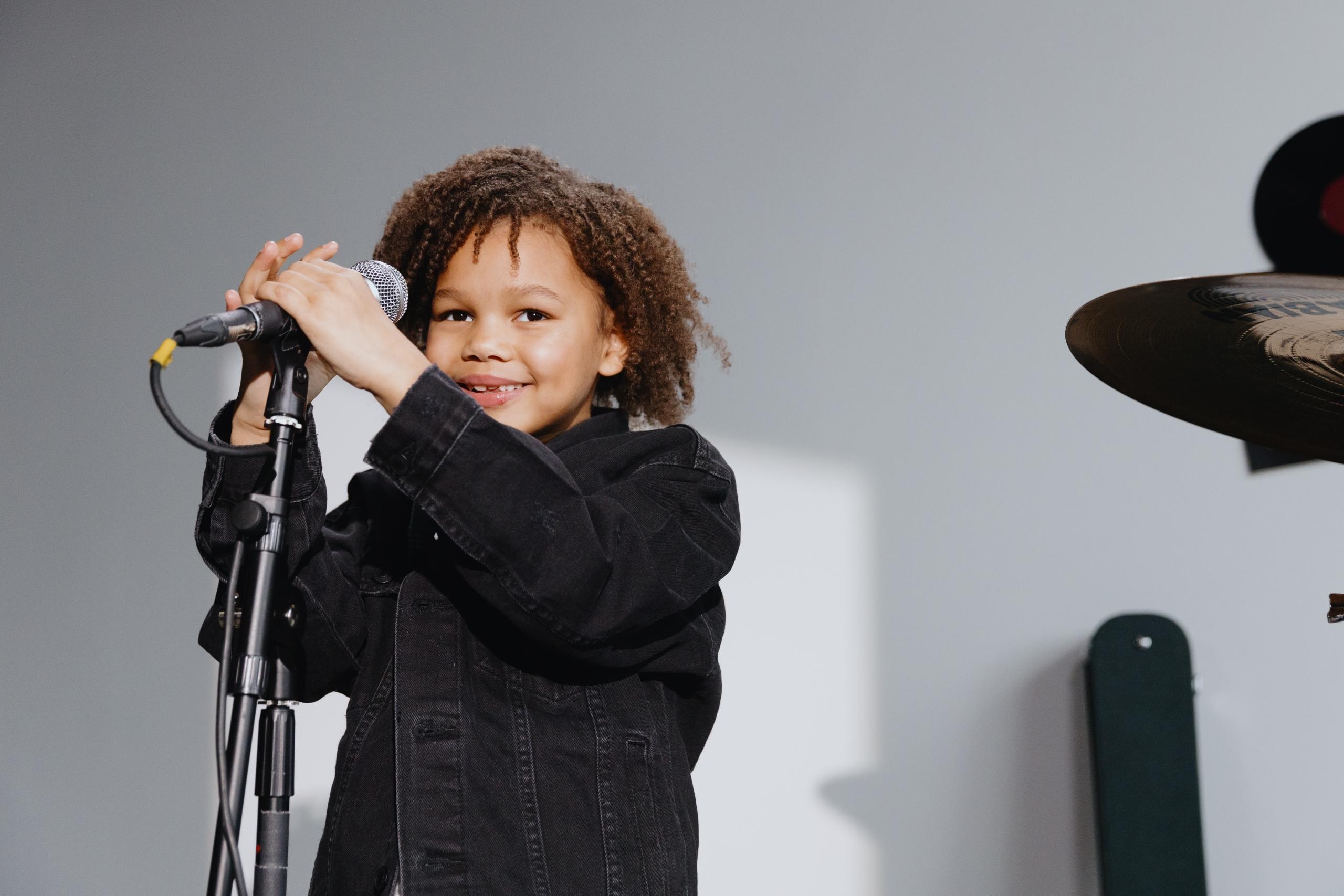Children frequently sing meaningful phrases to themselves over and over again before they learn to make a distinction between singing and saying. David Antin
During your child's schooling years, he or she will probably engage in a discussion of the basics of singing during Life Skills or Life Orientation lessons. If you have encouraged your child to pursue musical instrument classes, such as piano lessons, or guitar lessons, your child would have probably also learnt some music theory. When learning how to play a musical instrument, like the guitar, children are taught how to sing as well. It is, however, the very basic elements of singing that are taught to children who are already learning how to play a musical instrument. Teaching children how to sing, even just in a playful way, is a really fun thing to do.
Allowing children to understand the difference between singing and saying becomes more important as they get older. Toddlers who are just learning how to speak tend to pick out catchphrases from songs focused on repetition. They usually start by singing the phrase over and over again. At that point, they remain unaware that they are actually singing as opposed to saying.
However, as children grow older and start picking up on the difference between singing and saying, they begin to understand that it's much easier to say than to sing. Older children are less likely to go around singing for fear of being judged negatively. If only life was an episode of, Glee then everyone would just break out into song whenever and wherever they were.

If your child has grown up and left the Coco Melon phase behind, but he or she still likes to sing, you should definitely encourage this talent. If movies like Disney's Camp Rock have taught us anything it's that having singing talent is nothing short of amazing. If you have heard your child sing and you feel that he or she is pretty great, look at how you can foster this talent even further.
Don't make the mistake of letting your child's singing talent go unnoticed, rather consider getting singing assistance from a vocal tutor.
You can introduce your child to music by either allowing him or her to take music lessons at school, or by hiring a private or group vocal tutor to teach your child. Alternatively, you could also look at letting your child join a choir group in order to practise singing.
If you notice your child's singing talent, it is up to you to motivate your child to keep singing and keep trying and keep pursuing music classes. You must remember that children tend to lose interest rather easily, so you need to keep motivating them.
So, what can you expect from singing lessons?
We will try to provide you with all the answers that you are searching for when it comes to enrolling your child in singing lessons.
Want to give private lessons?
Join the Superprof community and share your knowledge with inquiring and motivated students.
Singing Lessons for Kids: What You Need to Know?
A good starting point when registering your child to learn with a singing instructor is to remember that singing will make your child happy should he or she be willing to give it a shot.
When you enrol your child in singing lessons with a private instructor or a singing group, they will learn how much more serious these lessons are compared to the bathroom singing they were used to.
Singing lessons will allow your child to learn the full capability of his or her voice.
This is done through vocal exercises. Vocal exercises are always a good thing simply because they ensure that your child is breathing correctly while singing.

When you get your child started with singing classes, you have to make sure that you are quite hands-on with their lessons. While you should not attend every single lesson, you might want to set up monthly meetings with the vocal coach to find out how your child is progressing and whether he or she is meeting his or her learning goals.
Does your child share his or her interests and details of the music that he or she likes with the teacher?
Sometimes it's important to intervene if your child is interested in some genre of music but is reluctant to share this interest with the teacher. A good suggestion would be to make sure that you have discussions with your child as well to find out what he or she is interested in.
Sometimes it's fun to get involved with your child's passion for singing at home as well. To learn more about what types of songs your child enjoys singing, you can look at some easy songs that you can sing with your children.
Whilst the vocal teacher is there to help your child improve his or her singing, you simply need to have fun and encourage your child to enjoy singing.
Singing makes all the people happy because it is the voice of happiness. Joseph Shabalala
Most vocal tutors adapt lessons to align with:
- The child's expectations for their lessons
- The child's experience with singing
- The child's breathing
- The child's pitch
- The child's vocal control.
So, basically, vocal lessons will put your child on the right path towards learning how to perfect his or her singing talent. If you are interested in pursuing singing lessons for your child, find out more about singing for children.
Voice Lessons Begins with Voice Warming Up
You may be considering what exactly your child's one-hour singing lesson will entail. Well, during the hourly lesson, your child will get to sing quite a lot. And, with singing comes warming-up exercises.
Every professional vocal tutor will instruct their students that they shouldn't start singing without preparing their vocal cords first.
When the child is warming up his or her vocal cords, this will be the time when the teacher will correct his or her vocals.
Keen about letting your child take singing classes, read about how to find singing classes for your child.

More About Lessons with a Vocal Coach
Singing can surely become something so natural once your child has fully worked on his or her technique and had proper rehearsals.
After warming up the vocal cords, the singing instructor gets the student to rehearse and provides feedback to help them sing better.
During rehearsals, the vocal tutor helps to break up the bad habits of their students. If your child has picked up any bad singing habits with regard to their singing techniques and style, the vocal tutor will rectify these bad singing habits and techniques, before they become a norm.
Rehearsals are usually the fun part of singing lessons.
However, all music lessons with singing coaches entail a fair amount of theory. While theory may not seem very exciting, it is quite necessary.
Once you are all grounded with your theory, it's back to the good things like singing along to songs that you like.
If your child is a huge K-Pop fan, perhaps the singing coach will allow some songs in that genre to be sung as well. If the thought of letting your child learn with a singing coach sounds appealing, find out more about the cost of children's singing lessons.
If you are extremely keen on getting your child to learn how to sing, you should consider reaching out to a private tutor from Superprof! On the Superprof website, there are many options for singing tutorial classes available. Superprof tutors offer face-to-face tutorials, online tutorials, and group tutorials.
Each type of singing tutorial comes with advantages and disadvantages so you must think carefully about which type of tutorial will work for your child. At the core of your decision should be your child and what is best for him or her. You could always start off with online vocal lessons if your child has a busy schedule or cannot seem to make one-on-one private lessons with a vocal tutor.
I don't sing because I'm happy: I'm happy because I sing. William James
Your child will be happier if he or she enjoys singing. Your child will also perfect his or her singing talent with the help of his or her singing tutor.
Want to give private lessons?
Join the Superprof community and share your knowledge with inquiring and motivated students.
Summarise with AI:





